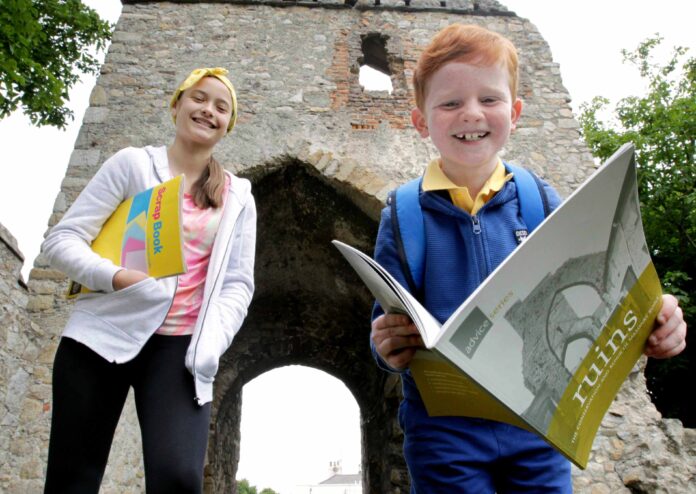
The Office of Public Works (OPW) and the National Monuments Service (in the Department of Housing, Local Government and Heritage) have launched a new campaign entitled Protect Our Past, highlighting the need for visitors to Ireland’s heritage sites and monuments to be mindful of their actions over the summer. The campaign, launched by Minister for Heritage and Electoral Reform, Malcolm Noonan TD, and Minister of State with responsibility for Office of Public Works, Patrick O’Donovan, TD, is reminding people of the importance of protecting our country’s unique archaeological and architectural heritage sites, many of which are extremely vulnerable.
There are over 145,000 recorded archaeological monuments around the country in private and public ownership, with latest research suggesting evidence of human activity in Ireland well over 10,000 years ago. Examples of archaeological monument types in Ireland include megalithic tombs, stone circles, standing stones, rock art, ecclesiastical enclosures, churches, graveyards, ringforts, souterrains, crannógs and castles.
The campaign information is available on www.gov.ie/opw/
As people enjoy a summer exploring Ireland, the two Departments are encouraging people to visit the many varied heritage sites that Ireland boasts but to be especially mindful of how fragile, vulnerable, and irreplaceable our heritage sites can be. Recent evidence of graffiti and anti-social behaviour at several of Ireland’s most significant monuments – some of which are ancient burial sites – has illustrated the need for more respectful behaviour. Some archaeological sites are suffering damage that threatens the preservation of archaeological remains. Small fires and ground disturbance, for example, which may be carried out with no ill intention, can destroy or seriously damage these monuments.
The Irish countryside is unique in Europe in the number of ancient monuments that survive from past ages. This campaign aims to increase understanding and appreciation of these monuments so we can all play our part in protecting them for the next generation.
Minister of State for Heritage and Electoral Reform, Malcolm Noonan TD, at the Department of Housing, Local Government and Heritage commented:
“Ireland has over 145,000 recorded archaeological sites and monuments spread across every town, parish and townland, meaning we are never far from a special place that provides us with a tangible link to our ancestors and our past. The rate of survival of Ireland’s archaeological and architectural heritage is unique and something to be proud of. We all have a role to play in ensuring its survival for present and future generations. I encourage everyone visiting a heritage site or monument this summer to be mindful of how their actions might impact these sites or monuments.”
Minister of State with responsibility for Office of Public Works, Patrick O’Donovan, TD, said:
“Our heritage defines our sense of identity; it tells us about who we are and where we came from and is a critical resource for education and learning. It includes evidence of the environment in which those societies lived – from the everyday to the very special. Heritage also plays a vital role in contributing to our tourism sector, especially in rural areas, so we need to come together to ensure we protect it.”
Our archaeological monuments are a source of pride and provide a sense of place, belonging and collective identity to communities across the country. These sites can inspire us with a profound sense of joy and wonder and make a contribution to enhancing well-being. Collectively we can work together to ensure that they are preserved for future generations to enjoy – just as we do today. Please take a moment to think about your actions when you next visit one of our precious archaeological sites.


















